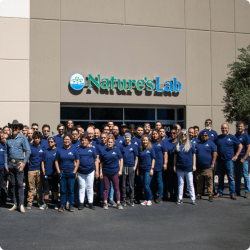
Product Spotlight: Ginger Supreme
 Ginger (Zingiber officinale) is a flowering perennial plant originating from the tropical rain forests of Southern Asia. A member of the Zingiberacea plant family, ginger is a plant rich in ancient history, with uses dating back 5,000 years in traditional herbal preparations, where it was often used as a tonic for common ailments.* Today, its rhizomes (roots) are commonly used to promote inflammatory and digestive health.* Ginger can be used fresh, dried, juiced or powdered into standardized extracts in supplement form, such as Nature’s Lab Ginger Supreme. Keep reading to learn more about this product and the benefits of this ancient herb.
Ginger (Zingiber officinale) is a flowering perennial plant originating from the tropical rain forests of Southern Asia. A member of the Zingiberacea plant family, ginger is a plant rich in ancient history, with uses dating back 5,000 years in traditional herbal preparations, where it was often used as a tonic for common ailments.* Today, its rhizomes (roots) are commonly used to promote inflammatory and digestive health.* Ginger can be used fresh, dried, juiced or powdered into standardized extracts in supplement form, such as Nature’s Lab Ginger Supreme. Keep reading to learn more about this product and the benefits of this ancient herb.The Importance of Gingerols

Ginger has a long history of use in traditional herbal remedies. Ginger contains natural oils called gingerol. Gingerol is the main bioactive compound in ginger, responsible for many of ginger's key benefits including anti-inflammatory support.* Ginger (and gingerols) may also help reduce oxidative stress to prevent damage from free radicals in the body.*1,2 While ginger naturally contains gingerols in its various forms, Nature's Lab Ginger Supreme is standardized to 20% gingerols.
Ginger & Digestive Health

Ginger and its metabolites accumulate in the digestive tract, which make ginger an important herb for digestive health.* Ginger has historically been used for thousands of years as a powerful therapeutic and preventative herb to curb nausea, relieve upset stomachs and support healthy digestion.*3 Ginger has also been studied as an anti-inflammatory agent, which may further support a healthy gastrointestinal tract.*3
Ginger & Inflammatory Health

As mentioned above, ginger has been studied for its anti-inflammatory effects, and one of the many health claims attributed to ginger is its potential to support a healthy inflammatory response and counteract joint pain and swelling.*3 Studies conclude that this ability to support inflammatory health is due to the inhibitory effect of gingerols on certain metabolite acids that may negatively impact the body.*3
The Benefits of Turmeric

Like ginger, turmeric is also a member of the Zingiberacea family. Both herbs contain similar compounds that support anti-inflammatory health, digestive health and more.* Use of this ancient herb dates back nearly 4,000 years to the Vedic culture in India, where it was used as a culinary spice. In Ayurvedic medicine, turmeric was well regarded for its anti-inflammatory properties.*
Turmeric contains many plant compounds, but curcuminoids are bioactive compounds within turmeric renowned for their health-promoting benefits.* While the curcuminoids found naturally in turmeric range at about 2%, some products standardize the amount of curcuminoids in their formulations for higher potency. Nature's Lab Ginger Supreme contains 25 mg of turmeric root extract standardized to 95% curcuminoids to support joint health, healthy inflammatory response, digestive health and antioxidant health.*
References
Wang, S., Zhang, C., Yang, G., & Yang, Y. (2014). Biological Properties of 6-Gingerol: A Brief Review. Natural Product Communications, 9(7). doi:10.1177/1934578x1400900736
Mashhadi NS, Ghiasvand R, Askari G, Hariri M, Darvishi L, Mofid MR. Anti-oxidative and anti-inflammatory effects of ginger in health and physical activity: review of current evidence. Int J Prev Med. 2013;4(Suppl 1):S36-S42.
Calcium and Vitamin D: Important at Every Age. (n.d.). Available from: https://www.bones.nih.gov/health-info/bone/bone-health/nutrition/calcium-and-vitamin-d-important-every-age
Bode AM, Dong Z. The Amazing and Mighty Ginger. In: Benzie IFF, Wachtel-Galor S, editors. Herbal Medicine: Biomolecular and Clinical Aspects. 2nd edition. Boca Raton (FL): CRC Press/Taylor & Francis; 2011. Chapter 7.
This article is for informational purposes only. It is not, nor is it intended to be, a substitute for professional medical advice, diagnosis, or treatment and should never be relied upon for specific medical advice. To the extent that this article features the advice of physicians or medical practitioners, the views expressed are the views of the cited expert and do not necessarily represent the views of Nature's Lab or its affiliated brands.







